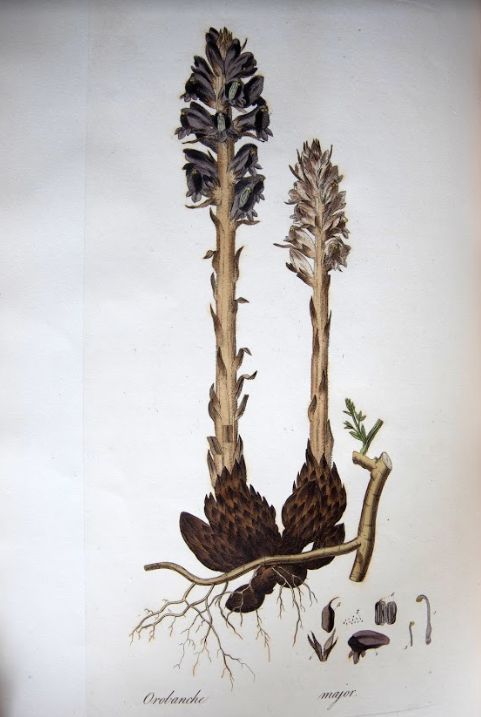
 |
 |
Page
25
|
|
Orobanche major – Great Broom Rape You will notice this plant is not green and the leaves are little more than scales. It is a parasitic plant which has lost its chlorophyll. Some Broomrapes are restricted to a single host e.g. Ivy Broomrape but other species can parasitise commercial crops such as tomato, eggplant, potato, cabbage, coleus, pepper, sunflower, celery, and beans and if it really gets a hold it can cause total crop failure. The flowers look a bit like snapdragon flowers. Curtis provides fascinating historical information: The literal English translation of the Greek word Orobanche is strangle-tare. This term has been given by Discorides for one plant and by Theophrastus for another; ours is undoubtedly the Orobanche of Discorides as it accords with his description (and Curtis then gives a reference) and of Pliny. So you have to be well read in the Classical literature to be a botanist! Pedanius Dioscorides was a Greek physician, pharmacologist, botanist, and author of De Materia Medica —a 5-volume Greek encyclopedia about herbal medicine and related medicinal substances, that was widely read for more than 1,500 years. Theophrastus's Enquiry into Plants or Historia Plantarum was one of
the most important books of natural history written in ancient times.
Theophrastus looks at plant structure, reproduction and growth; the
varieties of plant around the world; wood; wild and cultivated plants;
and their uses. Book 9 in particular, on the medicinal uses of plants,
is one of the first herbals, describing juices, gums and resins extracted
from plants, and how to gather them.
|